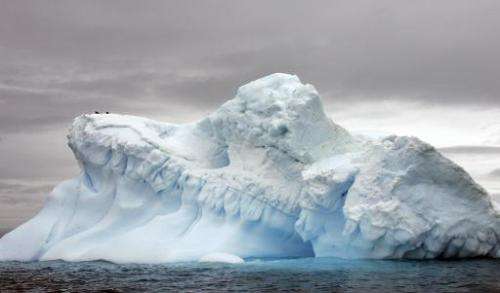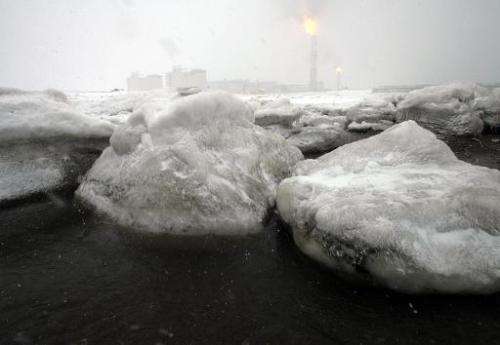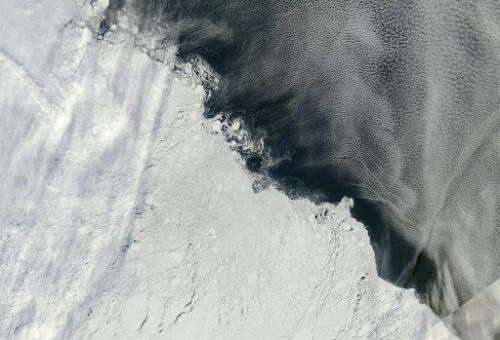Is it time to ditch the climate 'bible'?

Top UN experts have just delivered the first volume of a massive new climate change report, but already whispers are starting to be heard: Will it be the last such review?
By the end of 2014, the Intergovernmental Panel on Climate Change (IPCC) should have delivered all three tomes, plus a synthesis of the trio, of only its fifth such report in more than a quarter-century of existence.
To supporters, these massive "assessment reports" play a vital role in stoking awareness.
Not only do they condense the findings of thousands of studies published in peer-reviewed journals, in a transparent process in which the text is vetted twice over.
They also carry the approval of governments. A total of 195 nations have a seat on the IPCC and their representatives examine a summary of a technical text written by scientists.
This dual-track approach, say supporters, yields a fantastic tool for politicians who want to tackle climate change: they can tell the public that the need for reform is clear as the evidence comes from neutral and impartial sources.
Conversely, if politicians prevaricate on climate change, the public can challenge them on facts which they themselves had endorsed.
Cautious and painstaking the process may be, "but it delivers the key messages, that climate change is already happening and there are alarming signals of accelerating impacts", said a delegate at the IPCC discussions.
Jean Jouzel, a French scientist who is vice chairman of the group that issued Friday's report, said that though the technical text is authored by scientists "it is the adoption of the summary which gives the IPCC its success, and enables it (the summary) to be used by governments".
But some critics say these mega-reviews spanning thousands of pages belong to the past.

The process is agonisingly slow at a time when both climate change and the science used to evaluate it are leaping ahead, they say.
And the need for consensus makes these comprehensive judgements worryingly conservative.
"The question of whether the exercise is worthwhile is logical," said a European delegate, speaking on condition of anonymity, adding that "things have changed substantially since the first report" in 1990.
For example, an early cut-off date to review published literature meant that the Fourth Assessment Report in 2007 was unable to include dramatic new evidence about the melting of the ice sheets in Antarctica and Greenland.
Six years later, the issue of the ice sheets is being addressed in the Fifth Assessment Report, whose first volume on the physical evidence for climate change was released by the IPCC's Working Group 1 in Stockholm on Friday.
Compiling this document in itself took nearly three years.
This time around, the cut-off date meant the authors were unable to evaluate recent, but very worrying, studies that say methane trapped in ice-bound coasts in northeast Siberia is being released as seas warm, thus putting the greenhouse effect into higher gear.
"The (IPCC) reports are currently perceived to be quite dated already a few years after they have been published," said the Netherlands in a proposal to overhaul the panel's procedures.
Two more volumes in the Fifth Assessment Report are due next year. They will be released by Working Group 2, which deals with the impacts of climate change, in Yokohama, Japan, next March; and by Working Group 3, with deals with how to tackle the problem, in Berlin in April.

These will be crowned by a synthesis report, due out next October in Copenhagen.
Anders Levermann, a professor of climate system dynamics at the Potsdam Institute for Climate Impact Research (PIK) in Germany said the question as to whether there should be a sixth assessment report "is very, very difficult".
The biggest challenges are in Working Groups 2 and 3, where the regional impacts of drought, storms, flood and rising seas are becoming ever clearer, Levermann said in a phone interview.
"It's the sign of a maturing process of the whole climate issue, that we are moving in discussion from the question of whether there is climate change and whether it is man-made to how we can solve it," he said.
Several countries, including the United States, have joined the Netherlands in suggesting reforms when the panel meets in Georgia in the southern Caucasus.

Ideas include slimming the IPCC to two working groups and updating parts of the assessment report as and when necessary, rather than going through a vast soup-to-nuts review that ties down resources for years.
Another idea gaining ground is to focus efforts on specific issues, as the IPCC has already done with a smaller report on extreme weather events.
The IPCC "has provided invaluable evidence for policymakers, but giant reports should give way to nimbler, more relevant research", the science journal Nature declared.
© 2013 AFP




















